How an obscure gas tax could rescue Pennsylvania transit
-
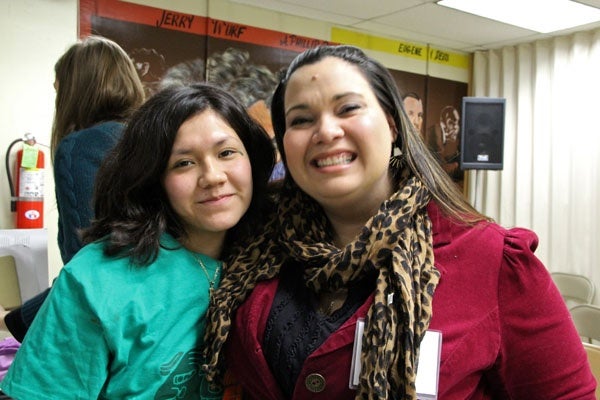
Olivia Vasquez (left) and Erika Almiron, are members of the Philadelphia based group JUNTOS. The group is planning a memorial to the deported on Feb. 12 and will join a mass mobilization in Washington, DC, on April 4. (Emma Lee/for NewsWorks)
-
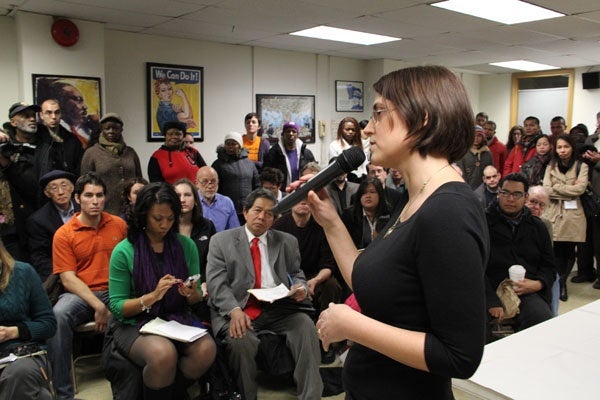
Natasha Kelemen of the Pennsylvania Immigration and Citizenship Coalition moderates a question and answer session about the group's new push for immigration reform. (Emma Lee/for NewsWorks)
-
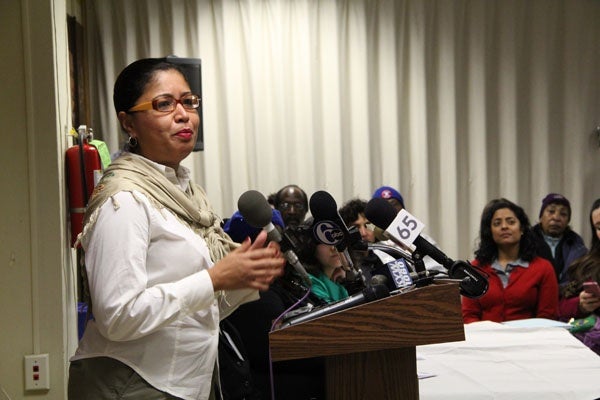
City Council member Maria Quinones-Sanchez speaks in favor of national immigration reform during a press conference at the AFSCME union hall on Walnut Street. (Emma Lee/for NewsWorks)
-
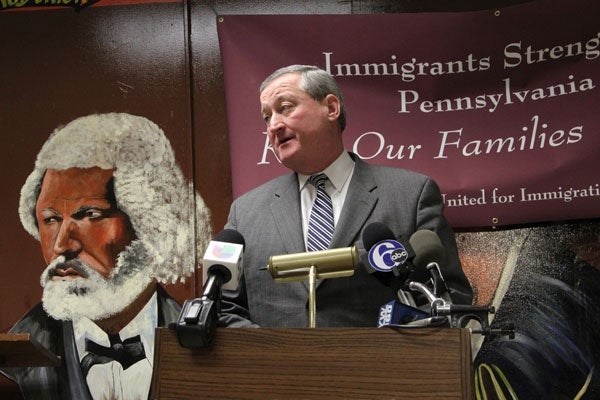
City Councilman James Kenney gives his support to Pennsylvania United for Immigration Reform during a press conference at the AFSCME union hall on Walnut Street. (Emma Lee/for NewsWorks)
-
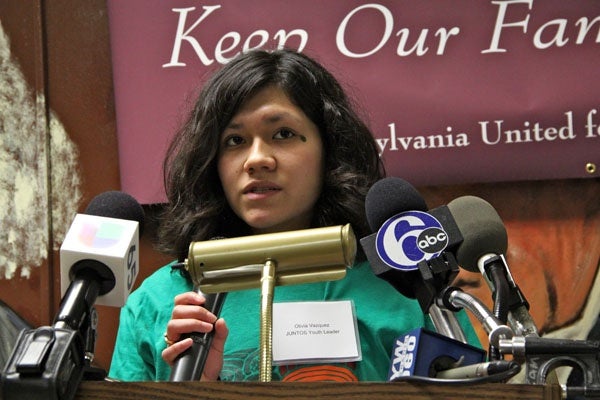
Olivia Vasquez, who was 10 years old when she arrived in the United States, knew her illegal status would prevent her from getting a drivers license and going to college. She is now a youth leader in JUNTOS, fighting for immigration reform. (Emma Lee/for NewsWorks)
-
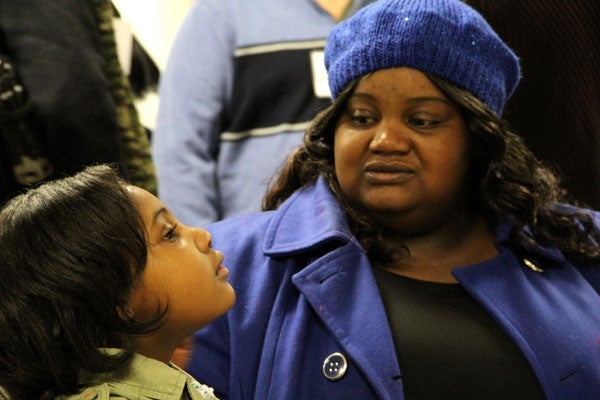
Jamaican immigrant Prudence Powell, with her daughter, Bryana Nunes, 7, arrived in the US when she was 12. Her illegal status prevented her from getting an education. "I want a better life for my children," she said. (Emma Lee/for NewsWorks)
-
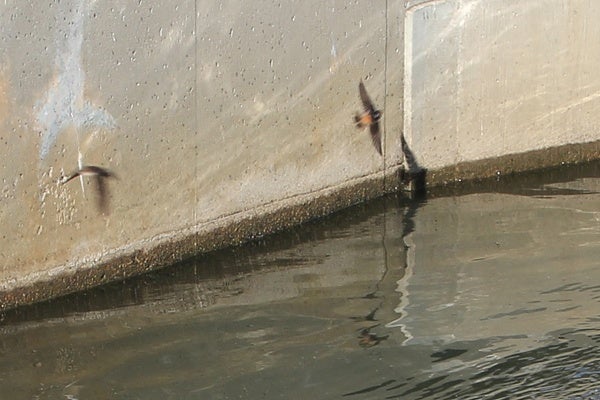
<p>A cinnamon colored rump patch distinguishes a cave swallow from the native northern rough winged swallows that have been overwintering at the sewer plant for years. (Emma Lee/for NewsWorks)</p>
-
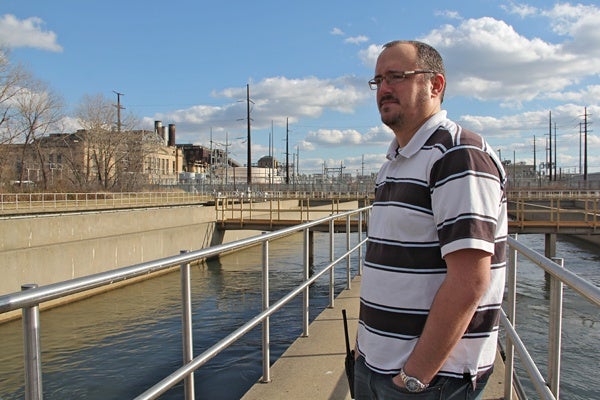
Anthony DiGironimo, a manager at the Northeast Philadelphia sewage treatment plant, watches as swallows hunt for midges above the effluent tanks. (Emma Lee/for NewsWorks)
-
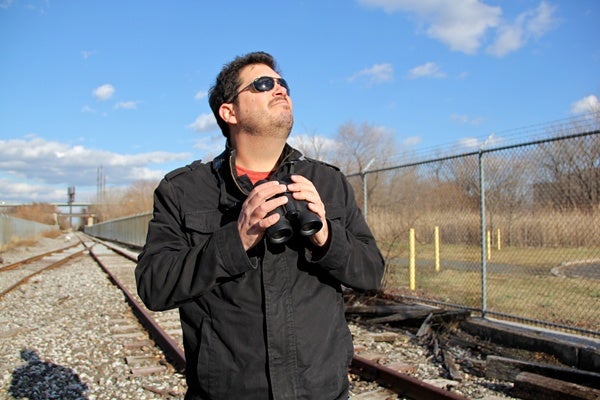
Birder George Armistead uses the railroad tracks that bisect the sewage treatment plant in order to observe the birds that are drawn to it. (Emma Lee/for NewsWorks)
-
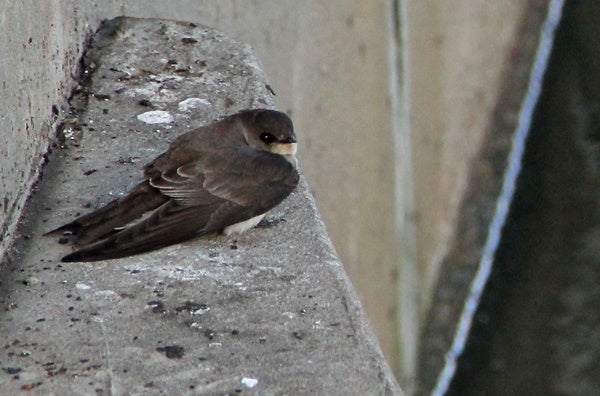
A rough winged swallow rests on a ledge above a pool of treated sewer water in Northeast Philadelphia. (Emma Lee/for NewsWorks)
-
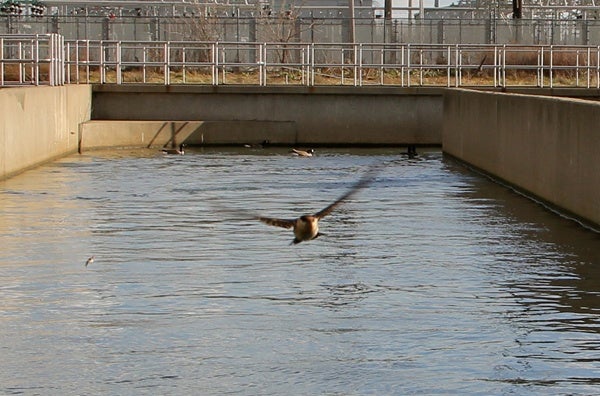
<p>Cave swallows make their home in the southwestern U.S., but some of them are overwintering at a Northeast Philadelphia sewage treatment plant. (Emma Lee/for NewsWorks)</p>
-
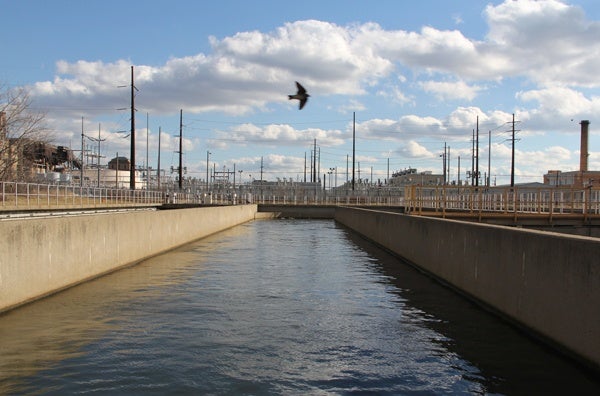
Swallows dart to and fro above the chlorination tanks, where their food, insects called midges, survive year round. (Emma Lee/for NewsWorks)
-
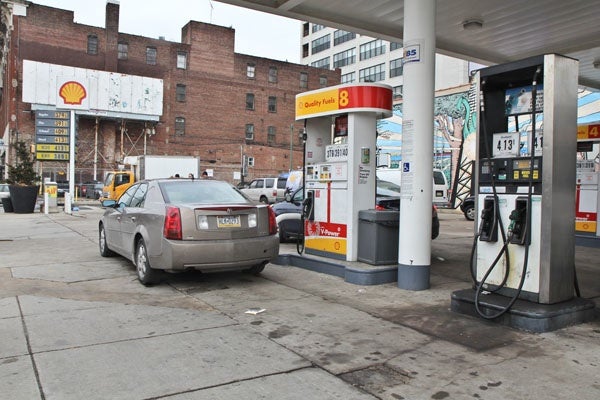
Some gas purchasers at the Shell station at 12th and Vine Streets in Phila. said that they would be ok with a higher tax on gasoline depending on where the funds go. (Kimberly Paynter/WHYY)
-
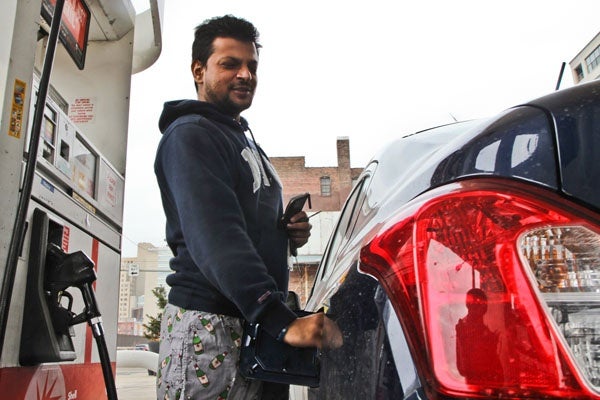
Ronak Vora feels the pain at the pump but said that he doesn't drive much. (Kimberly Paynter/WHYY)
-
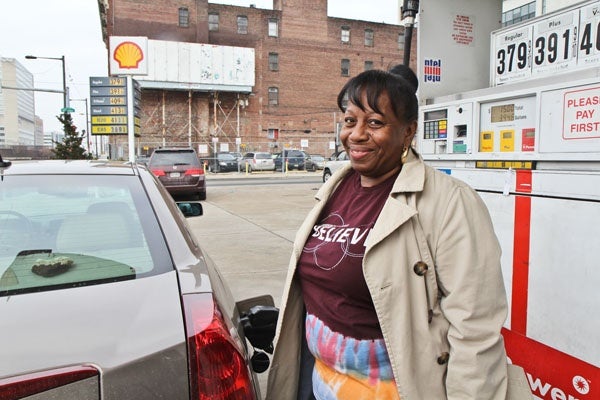
Audri Thomas said that fifteen bucks she spent on gas could have been better spent on a manicure. (Kimberly Paynter/WHYY)
-
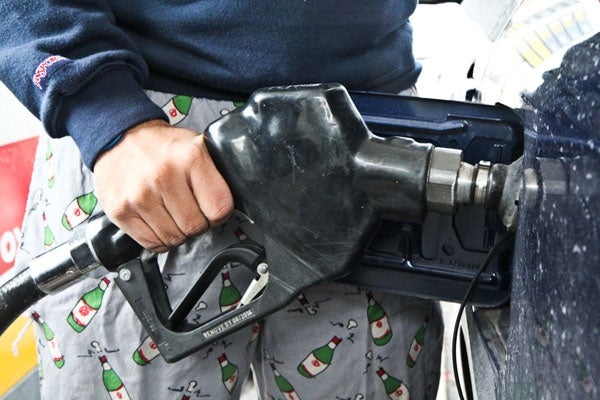
In his budget adress yesterday, Governer Corbett proposed raising the oil company franchise tax which is imposed on all liquid fuels. (Kimberly Paynter/WHYY)
You are about to start hearing a lot more from Harrisburg about an obscure gasoline tax. Here’s a primer.
On Tuesday, Governor Corbett announced his proposed 2013-2014 budget. As expected, it includes a hike to the “oil company franchise tax” as the keystone of a plan to fund the state’s transportation infrastructure.
It’s a change that Audri Thomas says she could accept, even as she fills her tank with regular unleaded costing $3.79 per gallon.
“I’m not what you’d call the driver in the family, but it seems that whenever I get the car it’s time to put the gas in the car,” said Thomas. “So it’s my turn today, and truly I’m not feeling it.”
Thomas appreciates that Pennsylvania has an acute transit funding problem.
As Governor Corbett acknowledged in his budget address, the state has a lot of old bridges, some verging on dangerous. Mass transit has more riders but its infrastructure is getting older.
“Transportation is the bloodstream of our economy. If it fails, our economy fails,” said Corbett, as he proposed uncapping the per-gallon tax paid directly by distributors.
“It is time for oil and gas companies to pay their fair share of the cost of the infrastructure supporting their industry.”
Will industry pay?
To say how much of the tax increase will trickle down to Audri Thomas, some background is in order.
Back when gas was cheap, the franchise tax got was capped so it was only charged on the first $1.25 per gallon. So even if the price of gas went above $1.25, the state would never get additional revenue. At $3.79 a gallon people are using less and driving more efficient cars. So the state is getting less money total.
Corbett thinks he can raise $1.8 billion by lifting the cap — that’s $1.2 billion for roads and bridges while still having money to boost dollars for mass transit and the Pennsylvania Turnpike.
The tax change will be phased in, ultimately the Governor’s office thinks this brings in an extra 25 cents a gallon.
Will drivers get stuck paying that extra quarter? Dick Voith of eConsult says there are three options.
“One, it’s going to come out of people’s pockets, consumers’ pockets. One, it’s going to come out of producers pockets; and one, it’s going to be shared,” he said.
Voith said wholesalers will probably try to raise prices, but consumers will probably buy less fuel and complain, forcing wholesalers to eat at least some of the cost.
“The suppliers are going to squeal like stuck pigs, because they’re being taxed,” said Voith.
The way gas prices go up and down on a weekly basis, some consumers may not even notice.
Is it enough?
There is a second gas tax item in the Governor’s budget. This will cut the flat tax paid at the pump by two cents a gallon over two years.
Mike Boyle at the Delaware Valley Regional Planning Commission says the small drop could help to sell the bigger tax increase.
“I think overall it’s a very positive sign,” Boyle said. “It’s additional funding that’s needed for critical projects.”
We’re still talking ballpark of an additional $2 billion for transportation infrastructure.
But — here’s the big caveat — transit infrastructure is a black hole of need right now. Boyer estimates road and bridge replacement in the Philadelphia region alone could cost over $5 billion in the next 5 years.
SEPTA estimates it needs another $5 billion.
WHYY is your source for fact-based, in-depth journalism and information. As a nonprofit organization, we rely on financial support from readers like you. Please give today.

